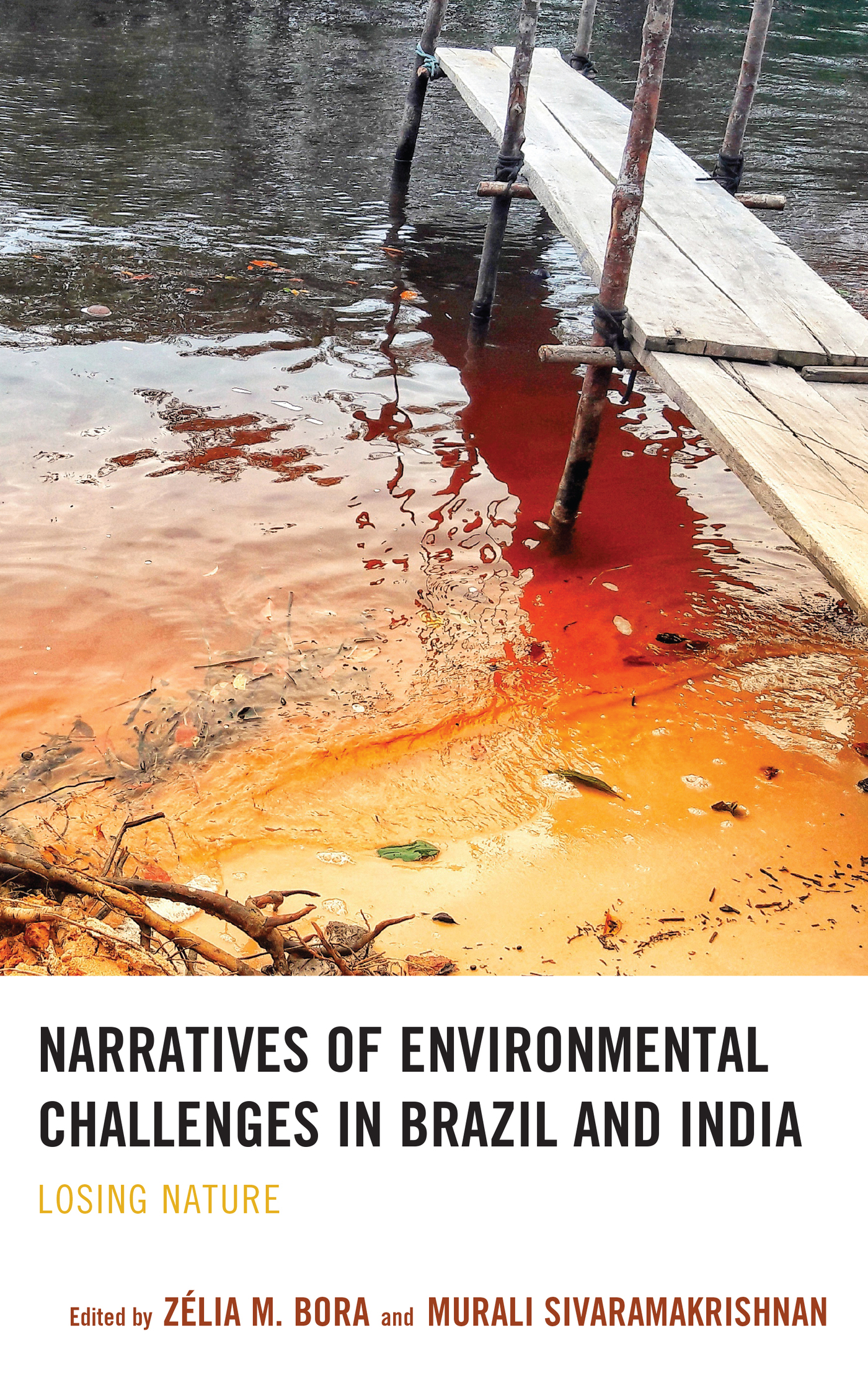Narratives of Environmental Challenges in Brazil and India
Ecocritical Theory and Practice
Series Editor: Douglas A. Vakoch, METI
Advisory Board:
Bruce Allen, Seisen University, Japan; Zlia Bora, Federal University of Paraba, Brazil; Izabel Brando, Federal University of Alagoas, Brazil; Byron Caminero-Santangelo, University of Kansas, USA; Simo Farias Almeida, Federal University of Roraima, Brazil; George Handley, Brigham Young University, USA; Steven Hartman, Mlardalen University, Sweden; Isabel Hoving, Leiden University, The Netherlands; Idom Thomas Inyabri, University of Calabar, Nigeria; Serenella Iovino, University of Turin, Italy; Daniela Kato, Kyoto Institute of Technology, Japan; Petr Kopeck, University of Ostrava, Czech Republic; Serpil Oppermann, Hacettepe University, Turkey; Christian Schmitt-Kilb, University of Rostock, Germany; Heike Schwarz, University of Augsburg, Germany; Murali Sivaramakrishnan, Pondicherry University, India; Scott Slovic, University of Idaho, USA; J. Etienne Terblanche, North-West University, South Africa; Julia Tofantuk, Tallinn University, Estonia; Cheng Xiangzhan, Shandong University, China; Hubert Zapf, University of Augsburg, Germany
Ecocritical Theory and Practice highlights innovative scholarship at the interface of literary/cultural studies and the environment, seeking to foster an ongoing dialogue between academics and environmental activists.
Recent Titles in the Series
Narratives of Environmental Challenges in Brazil and India: Losing Nature, edited by Zlia M. Bora and Murali Sivaramakrishnan
Ecological Crisis and Cultural Repsentation in Latin America: Ecocritical Perspectives on Art, Film, and Literature, by Mark Anderson and Zlia Bora
The Ethics and Rhetoric of Invasion Ecology, by edited by Ames Stanescu and Kevin Cummings
Ecotheology in the Humanities: An Interdisciplinary Approach to Understanding the Divine and Nature, edited by Melissa Brotton
Coexistentialism and the Unbearable Intimacy of Ecological Emergency, edited by Sam Mickey
T.S. Eliot, Poetry, and Earth: The Name of the Lotos Rose, by Etienne Terblanche
Ecofeminism in Dialogue, edited by Douglas A. Vakoch and Sam Mickey
The Image of the River in Latin/o American Literature: Written in the Water, edited by Jeanie Murphy and Elizabeth G. Rivero
Rhetorical Animals: Boundaries of the Human in the Study of Persuasion, edited by Kristian Bjrkdahl and Alex C. Parrish
Ecocriticism in Japan, edited by Hisaaki Wake, Keijiro Suga, and Yuki Masami
Narratives of Environmental Challenges in Brazil and India
Losing Nature
Edited by Zlia M. Bora
and Murali Sivaramakrishnan
LEXINGTON BOOKS
Lanham Boulder New York London
Published by Lexington Books
An imprint of The Rowman & Littlefield Publishing Group, Inc.
4501 Forbes Boulevard, Suite 200, Lanham, Maryland 20706
www.rowman.com
6 Tinworth Street, London SE11 5AL, United Kingdom
Copyright 2019 by The Rowman & Littlefield Publishing Group, Inc.
All rights reserved. No part of this book may be reproduced in any form or by any electronic or mechanical means, including information storage and retrieval systems, without written permission from the publisher, except by a reviewer who may quote passages in a review.
British Library Cataloguing in Publication Information Available
Library of Congress Cataloging-in-Publication Data Available
ISBN 978-1-4985-8114-1 (cloth : alk. paper)
ISBN 978-1-4985-8115-8 (electronic)
 TM The paper used in this publication meets the minimum requirements of American National Standard for Information Sciences Permanence of Paper for Printed Library Materials, ANSI/NISO Z39.48-1992.
TM The paper used in this publication meets the minimum requirements of American National Standard for Information Sciences Permanence of Paper for Printed Library Materials, ANSI/NISO Z39.48-1992.
Printed in the United States of America
To my children Siddharth and Sarita and family in India.
And my dear husband Robert.
In memory of Col. Kailash Bora
In memory of Mrs. Bhagavathy Sivaramakrishnan
Acknowledgments
Thank you to all contributors for their contributions to this volume. Thank you to Adaylson Wagner Sousa de Vasconcelos for his invaluable editorial assistance with the project. Thank you for Lexington Publishers, Douglas Vakoch, Nick Johns, and Lindsey Falk for their continuing intellectual support of my work.
Preface
Murali Sivaramakrishnan
Ecological Criticism: Theory, Significance, Difference
The rising concern for the environment and the human-nature nexus has taken the center stage in almost all debates and forums in the presentacademic or otherwise. The degradation of the environment and the power that humans exert on it has been much contested and debated upon. Although in the geological time scale, human civilization has been around only for a few thousand years, even within that short span of time we have managed to create quite a disorder in ecological balance by etching our dominance over nature. Perhaps the rapid increase of human population and the unbridled pace of economic and industrial development has left us battling with other species for limited resources. Ancient human was a hunter and food gatherer who turned to and depended upon nature for survival; thus essentially human beings are allied closely to the eco-system and dependent on it. This living connection with our natural environment has changed little despite our cultural fabric. Literary narratives could be pointers towards minimizing the break as is evidenced in much of the texts from time immemorial from cultures and communities diverse and different.
When this project on environment and water was floated the major point raised by many a contributor was whether we needed to focus on literature and theory or on hard core issues of environment. As editors we were also concerned with similar issues: are we heading toward a collection of articles with a common theme of ecology and critical theory, or are we trying to propose a specific way of looking at literature and the world of the present which may or may not be common to all the authors included? Could it also lead toward a newer perception of the literary as we understand it in todays world? Or would the whole project be focused on policy and development issues? In most ways, I guess, many of these perceptions would be suitable, since the issue asked prospective authors to compose essays on new directions in ecocritical theorizing with environment, water, and forests in particular.
In the field of literary and cultural theory ecocriticism might be a relatively new entrant with perhaps conflicting methodological stances, unlike, say, Marxist or Feminist standpoints, or even Queer theories.
Given its diversity of perceptions, we do have to recognize the academic orientation of ecocriticism from its inception had been west-bound, specifically Americanwhile theorization that followed in its wake had incorporated several factors like issues in poststructuralism, globalization, and ecoterrorism, to mention only a few in the light of emerging cultural situations. Now, whatever positions ideological or otherwise that one were to take, it is needless to reiterate the fact that ecocriticism is closely bound to theory in the west and east alike. Perhaps, as Patrick Murphy has argued, it is a little closer to the Bakhtinian (see Murphy, 2013, p. 11) notions of answerability:
It takes very little imagination to see how answerabilty imposes obligations on the ecocritic in relation to environmental issues, representations of ecology, and the quality and functionality of artistic images of nature, environments, ecologies, and human practices.

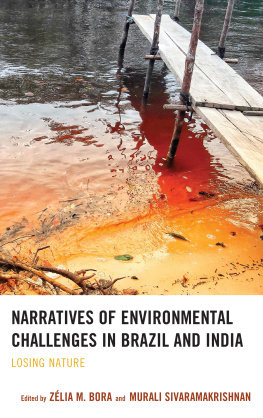
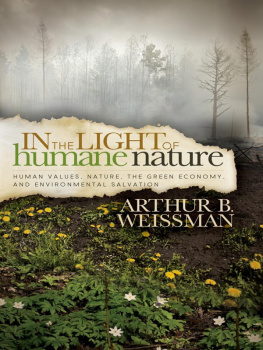

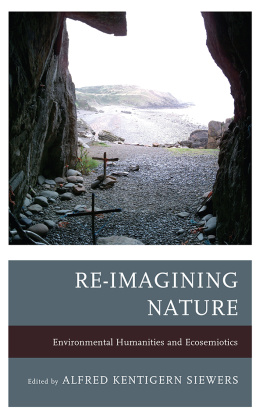
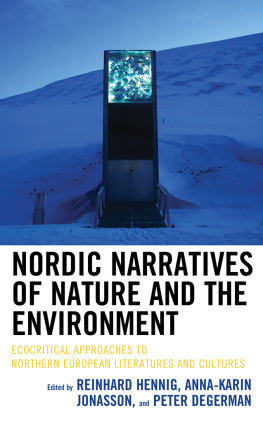
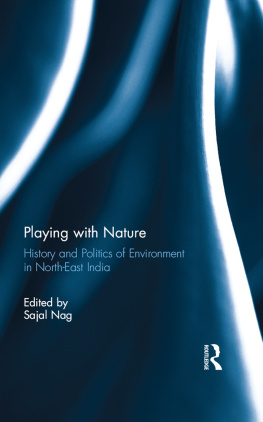
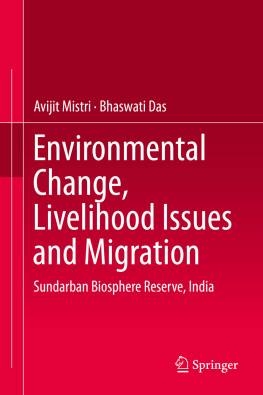


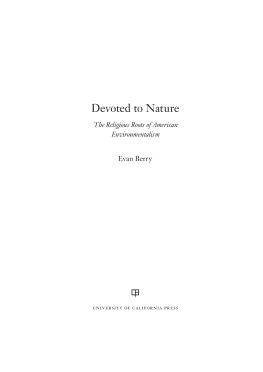
 TM The paper used in this publication meets the minimum requirements of American National Standard for Information Sciences Permanence of Paper for Printed Library Materials, ANSI/NISO Z39.48-1992.
TM The paper used in this publication meets the minimum requirements of American National Standard for Information Sciences Permanence of Paper for Printed Library Materials, ANSI/NISO Z39.48-1992.